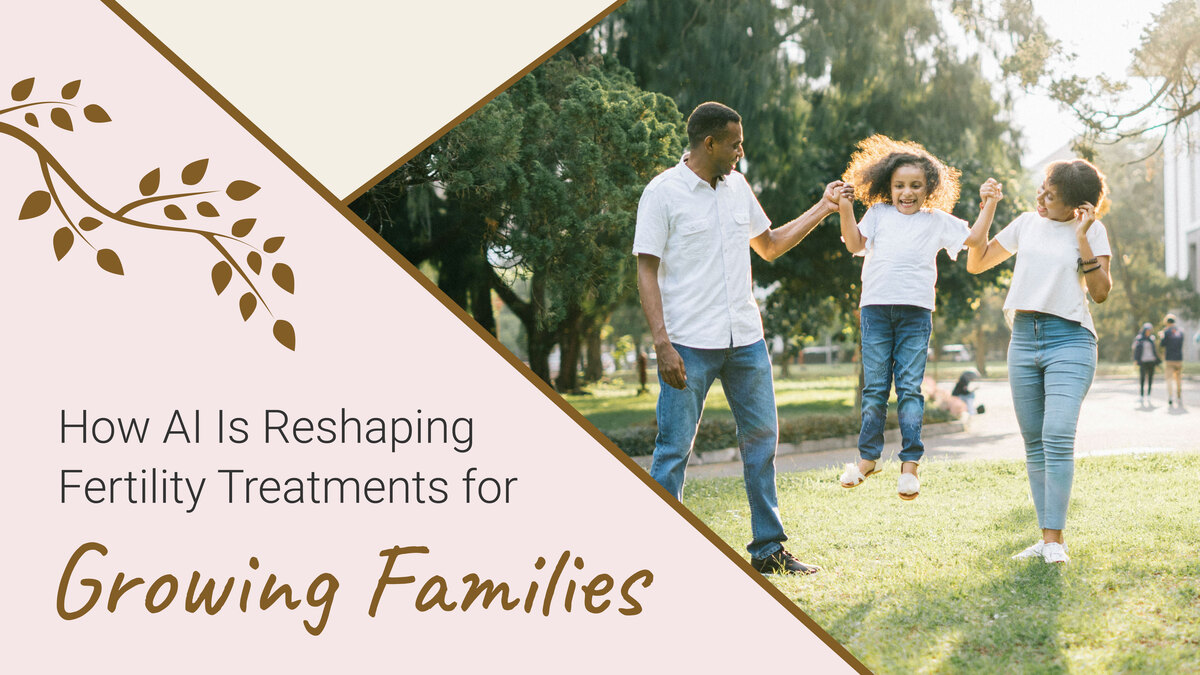How AI Is Reshaping Fertility Treatments for Growing Families

For individuals and families exploring fertility treatments, the process can feel overwhelming—filled with decisions, unknowns, and emotional weight. But in recent years, something remarkable has begun to change in this space. Artificial intelligence is already transforming fertility care, offering new clarity, confidence, and hope. It’s not science fiction. It’s happening now—and it’s making a meaningful difference in the lives of patients every day.
At The Fertility Wellness Institute of Ohio, we stay at the forefront of innovation to offer our patients the most supportive, informed, and personalized care possible. AI in fertility isn’t replacing providers or procedures. It’s enhancing the ability to make data-driven decisions, improve embryo selection, and support individualized treatment planning. For many, this means fewer questions, more possibilities—and a brighter path forward.

How AI Is Already Supporting Fertility Treatment Success
AI in fertility care is already being used in clinics to help improve success rates and deliver more personalized guidance. One of the most impactful applications is in embryo grading—a process that evaluates embryos for viability before transfer. Traditionally, embryologists rely on visual assessments of embryo morphology, including shape, cell division, and development timing. These assessments require great expertise, but they’re still limited by human subjectivity.
Artificial intelligence models, trained on thousands of embryo images and outcomes, are now identifying subtle patterns that may not be visible to the human eye. These tools use time-lapse imaging and other non-invasive data to analyze the development of embryos with remarkable precision.
Beyond embryo selection, AI is also helping clinics analyze complex patient data—such as hormone levels, ovarian response, previous cycles, and other indicators—to refine treatment protocols. These insights allow providers to offer fertility solutions that are tailored to each individual’s body and reproductive goals.
Smarter Embryo Selection through AI Imaging
AI has demonstrated strong results in predicting embryo viability. In one study, AI systems trained on both embryo images and patient data reached a median accuracy of 81.5% when identifying embryos likely to lead to a successful pregnancy. For comparison, clinical embryologists performing the same task had a median accuracy of 51%.
This level of precision matters. For patients, it can lead to improved implantation rates, a higher chance of pregnancy, and potentially fewer IVF cycles overall. These models also offer more consistency, reducing the variation between individual embryologist assessments.
How are embryos graded? AI-enhanced tools consider both visual and developmental markers—like fragmentation levels, division timing, and blastocyst quality—using a database of successful outcomes. By streamlining and supporting this process, AI offers patients and providers alike an added layer of confidence in embryo selection.
Individualized Care through Data-Driven Planning
AI’s value extends well beyond the lab. Fertility care is incredibly personal, and each patient brings a unique reproductive history. Machine learning tools are now helping providers sort through vast volumes of clinical data to tailor treatments more precisely. This includes predicting how a patient might respond to different medications, when to schedule egg retrieval, or how to approach treatment options like IUI or INVOcell.
By uncovering patterns in past patient cases and current hormone levels, AI can help guide dosing decisions, anticipate complications, and reduce trial-and-error. This makes care not only more accurate but also more efficient and emotionally supportive. Fertility specialists can focus more on patient relationships, confident that their decisions are being backed by data-informed insights.

Why AI Matters for Patients and Providers
While it’s exciting to talk about high-tech breakthroughs, the heart of this shift is deeply human. Fertility journeys come with emotional highs and lows, and patients often crave both information and reassurance. AI offers both.
When AI tools help identify viable embryos or personalize treatment pathways, they provide patients with clearer next steps and greater peace of mind. They also support our providers in delivering compassionate, evidence-based care without second-guessing the science.
In several studies, AI models consistently outperformed human assessments in predicting pregnancy outcomes using combined embryo imaging and clinical data. The most successful models used both types of inputs—visual and medical history—to reach that 81.5% accuracy mark.
This level of improvement has the potential to reduce failed cycles, avoid unnecessary procedures, and limit financial and emotional strain over time. The result is a more empowering experience for those seeking fertility solutions with hope in their hearts and science by their side.

What’s Next in AI and Fertility Medicine
The progress we’ve seen so far is only the beginning. Researchers are now exploring how AI can integrate with genomic testing, offering insights that go beyond physical appearance and into the underlying health of embryos. As embryo genetic testing becomes more precise, AI may help providers interpret this complex data in a way that supports both safety and success.
In addition, technologies like microfluidics and improved cryopreservation techniques are being studied for their potential synergy with AI systems. These tools could enhance how eggs and embryos are handled, stored, and selected—paving the way for even more thoughtful care protocols.
There’s also movement toward incorporating AI into electronic medical records (EMRs) to flag helpful treatment adjustments or risks earlier in the process. And as IVF genetic testing evolves, AI may soon become a standard part of evaluating results and designing care plans.
These innovations won’t replace the warmth, expertise, or human connection that define fertility care. Instead, they will amplify what we can offer—especially when combined with the deep trust we build with each patient.
Create a Brighter Path to Parenthood with The Fertility Wellness Institute
Fertility treatment today looks different than it did even a few years ago—and for good reason. Emerging technologies like AI are helping our team personalize every experience and enhance the chances of success for hopeful individuals and families alike.
At The Fertility Wellness Institute of Ohio, we believe that advanced technology should never come at the cost of compassion. We’re committed to offering innovative tools like AI alongside thoughtful, human-first care—because growing your family deserves both science and support.
To learn how AI in fertility may support your goals, reach out to us today:
https://www.chinbaby.com/contact-us/
Let’s explore what’s possible—together.

